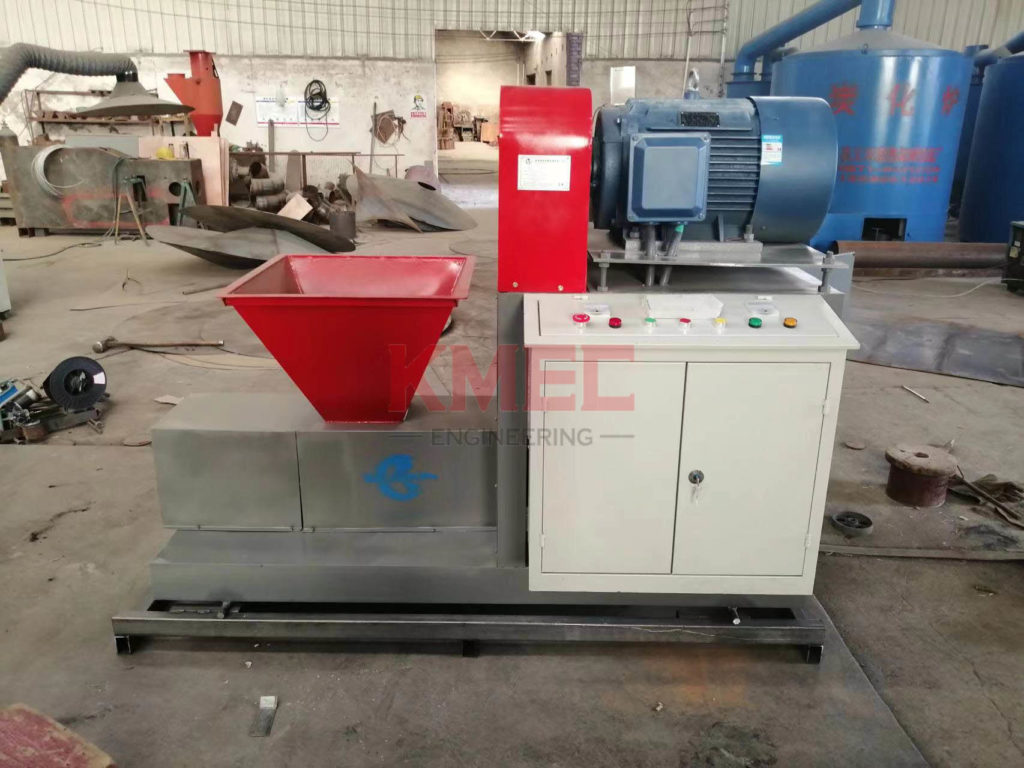What are the requirements of briquette fuel for raw materials?
Biomass briquette fuel is a new clean fuel which can be directly burned by briquette machine. Agricultural and forestry wastes are the main raw materials, such as peanut shells, straws, rice hulls, branches, sawdust, etc. Bio-briquette fuel retains the excellent properties of original biomass, such as flammability and pollution-free, and has the characteristics of fire resistance, thus prolonging the combustion time and greatly increasing the furnace temperature. Compared with the bulk biomass, biomass briquette fuel has a larger capacity, smaller volume, and several times smaller volume, which is convenient for storage and transportation. Compared with loose raw materials, biomass briquette fuel has a higher heat utilization rate.

Biomass briquette fuel has some requirements for raw materials:
1. Raw material size.
The raw materials for briquetting should be neither too big nor too small. Before production, the raw materials should be processed into appropriate sizes by a crusher.
2. Moisture content.
The raw materials of biomass briquette fuel should be neither too dry nor too wet. If the fuel is too dry, the briquette is not easy to form; if the raw materials are too wet, the briquettes are easy to loosen.
3. Quality of raw materials.
Avoid using moldy and blackened raw materials, so as not to affect the quality of biomass briquettes.
4. Adhesion of raw materials.
Generally, biomass briquette fuel does not need to add adhesive, which requires the raw materials to have natural adhesive force, otherwise the briquette will be loose and difficult to form.
With the increasingly severe global ecological situation, briquette fuel produced by biomass briquette machine is of great significance to global environmental protection. When selecting raw materials of biomass briquette fuel, we should keep the above four points in mind to ensure the production of high-quality biomass briquette fuel.

